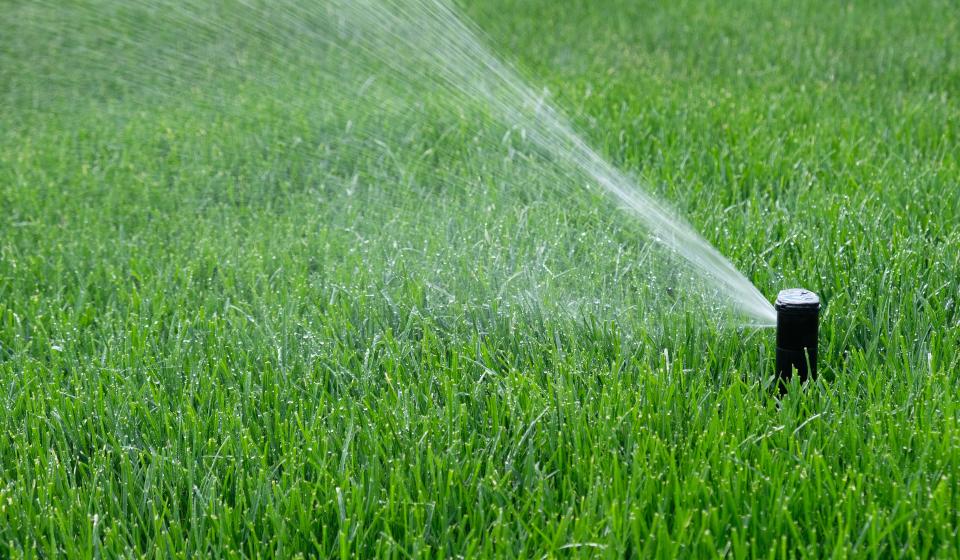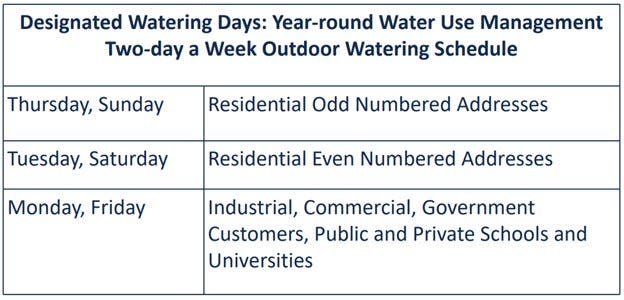Thursday’s City Council meeting brought new restrictions to water usage in the city of Abilene.
Rodney Taylor, director of water utilities, led the cause to implement a new two-day-a-week watering schedule for all city residents in light of water reserves likely falling below 50% in the coming weeks.
The agenda item passed unanimously.
Lessening water reserves
The city of Abilene Water Conservation Plan Ordinance was “developed in the mid 1980’s in response to severe drought conditions which affected its available water supplies,” according to the agenda packet.

The plan “discourages the wasting of water and regulates or prohibits discretionary and non-essential uses such as outdoor watering and car washing during times of water shortages.”
City officials believe that the “combined storage in Hubbard Creek Reservoir and Lake Fort Phantom Hill will reach 50% around August 1,” according to the agenda packet.
Taylor said Thursday in city council that Lake Fort Phantom Hill sits at 65.3% of water capacity while Hubbard Creek Reservoir sits at only 48.1%.
This makes for a combined capacity of 51.8%.
“We are not yet in a critical situation,” Taylor said.
He hopes, however, to bring attention to the issue to encourage residents to be conservative in their use of water.
What’s the new schedule?
Abilene city councilmembers voted to change the watering schedule from three days per week to two days per week starting Aug. 7 in the wake of Taylor’s warnings.
This change is effective for Abilenians, as well as commercial customers located in the city, and all should adhere to thefollowing schedule for designated watering days.


Taylor stressed in the council meeting, however, that watering on specified days should not take place in the heat of the day.
Instead, watering should also occur during specified hours from midnight to 10 a.m. or from 6 p.m. to midnight.
‘Not in a drought’
Jeremiah Bihl, one of the assistant directors of water utilities, said Monday in a statement, “Currently, we are not in a drought.”
Abilene’s lakes and reservoirs are reporting lowering water reserves, so the city is “preemptively enacting water conservation methods in an effort to help stabilize the water levels,” Bihl said.
Officials such as Bihl are unsure how long the new watering schedules will remain in effect.
But that there are several factors that “influence this schedule, including rainfall, water inflow into our lakes and reservoirs, and overall water demand and usage,” he said.
“Should water levels begin to rise, we will evaluate returning to the normal watering schedule. Conversely, if water levels continue to fall and trigger the next level of water conservation measures, additional changes should be expected,” Bihl said.
This article originally appeared on Abilene Reporter-News: New water restrictions hit the city of Abilene
Source Agencies
